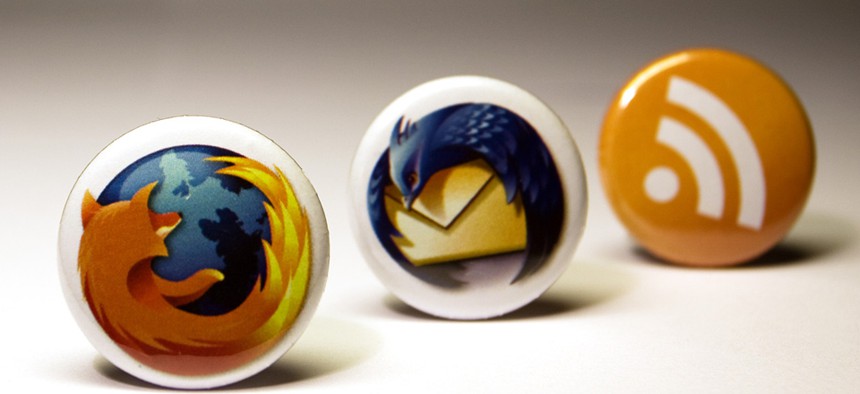Mozilla Has a Plan to Save Net Neutrality

Flickr user flod
The Firefox-maker pitches a new idea to prevent Internet 'fast lanes.'
Mozilla is urging the Federal Communications Commission to enact new rules to bar Internet service providers from charging websites for faster service.
In a filing with the FCC on Monday, the nonprofit foundation that makes the Firefox Web browser outlined a new legal path to enact tough network-neutrality regulations.
Chris Riley, a senior policy engineer for Mozilla, said the group's proposal is "grounded in a modern understanding of technology and markets" and would "help ensure that the Internet continues to be an innovative and open platform."
The filing introduces a new angle to the debate over regulation of Internet access, but it's unclear how interested the FCC will be in Mozilla's proposal.
In January, the D.C. Circuit Court of Appeals struck down the FCC's old neutrality rules. FCC Chairman Tom Wheeler wants to rework the rules in a way that can survive future court challenges.
His proposal would bar Internet providers from blocking any websites but (unlike the old rules) would allow them to charge for special "fast lanes" in at least some cases. The FCC is set to vote on whether to move ahead with Wheeler's proposal on May 15.
Liberals are outraged that the FCC would allow Internet fast lanes, saying it would allow ISPs to pick winners and losers and would tilt the Internet in favor of the largest corporations.
Consumer advocacy groups are urging the FCC to reclassify broadband Internet service as a Title II "telecommunications service"—a move that would dramatically expand the FCC's legal authority and allow it to reinstate strong rules that ban fast lanes. But reclassifying the Internet under Title II of the Communications Act would prompt a massive backlash from Republicans and business groups, who warn the FCC would be granting itself new unchecked regulatory powers and would risk stifling the growth of broadband networks.
In its filing Monday, Mozilla proposed a third option. The FCC should use the Title II option—but only for the relationship between websites and ISPs, not the relationship between consumers and ISPs, the group said.
The proposal would allow the FCC to bar ISPs from charging websites for fast lanes while still using the current light regulatory regime for other Internet issues that affect consumers, the group said.
Mozilla argued that its proposal is not "reclassification" because the FCC has never explicitly defined the relationship between ISPs and Web companies.
"With our proposal, the FCC would be able to shift its attention away from authority questions once and for all, and focus instead on adopting clear rules prohibiting blocking and discrimination online," Riley wrote in a Mozilla blog post.
Harold Feld, a senior vice president for the consumer group Public Knowledge, applauded the proposal, which he said is a "novel idea" for saving net neutrality.
He said the filing is significant not only because of the substance of the proposal but also because of who is making it. The cable industry has been warning against tough regulation, but Mozilla's filing shows that powerful business interests are on the side of net neutrality, Feld said.
"This creates a new constituency that says Title II is not a 'nuclear option.' Title II is a technical thing that you've got to do," Feld said.
But Mozilla's proposal may not be much more politically viable than the full-scale Title II option.
Berin Szoka, president of the libertarian group TechFreedom, said the "practical effect of their proposal would be almost exactly the same as reclassification of broadband generally." He said that the idea looks easy on paper but that in practice it would be "messy, slow, and unpredictable."
"Opening the door to Title II at all would still create significant regulatory uncertainty that would harm broadband investment, and thus make consumers worse off," he said.
(Image via Flickr user flod)






